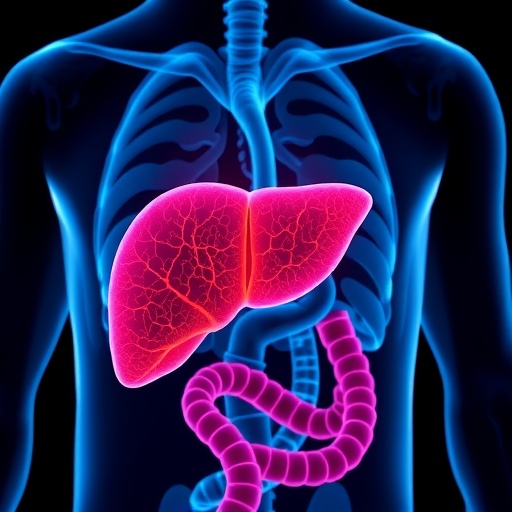In a groundbreaking international study spearheaded by researchers at the Mayo Clinic, a significant genetic factor has been identified that elucidates why certain patients with colorectal cancer metastasized to the liver suffer more pronounced liver damage following chemotherapy treatment. This discovery, published in the prestigious journal EBioMedicine, represents a pivotal advancement in understanding the nuances of chemotherapy-associated liver injury and has profound implications for personalized cancer therapy.
Colorectal cancer remains a formidable global health challenge, particularly when it extends to the liver. The standard and most promising curative approach for patients with colorectal liver metastases is surgical resection, offering the best long-term survival outcomes. Often, chemotherapy is administered before surgery to reduce tumor burden and facilitate operability. While this neoadjuvant chemotherapy strategy has proven beneficial in shrinking tumors, it carries the inherent risk of damaging the liver, which is the primary site for drug metabolism and detoxification.
The clinical enigma, until now, lay in deciphering why certain individuals experience severe chemotherapy-induced liver injury while others tolerate treatment relatively well. The Mayo Clinic team, led by hepatobiliary surgeon Dr. Patrick Starlinger, conducted a comprehensive analysis involving 551 patients who underwent chemotherapy followed by hepatic surgery. Their goal was to examine the interplay between genetic factors and liver vulnerability to chemotherapy’s toxic effects.
Central to their findings was the identification of a specific variant in the PNPLA3 gene, a gene already recognized for its crucial role in hepatic fat metabolism and previously implicated in various liver diseases. This genetic polymorphism was strongly correlated with an increased risk of hepatic injury post-chemotherapy. Remarkably, patients homozygous for the variant—those carrying two copies—unfailingly exhibited significant liver damage, underscoring a clear genetic predisposition to chemotherapy-induced toxicity.
The implications of this discovery extend beyond individual patients to encompass population-wide variability. The PNPLA3 variant exhibits marked differences in frequency across global populations. For example, it appears in over 41% of the Japanese population and a striking 71% of individuals of Peruvian descent, yet it is found in fewer than 10% of certain European groups. These disparities potentially explain inconsistencies reported in earlier clinical trials evaluating chemotherapy’s efficacy and safety before and after liver metastasis resection in different countries.
This genetic insight fundamentally challenges the “one-size-fits-all” paradigm of chemotherapy administration in colorectal liver metastases. By integrating genetic screening for the PNPLA3 variant into clinical practice, physicians can better stratify patients according to their risk profile for liver injury. Such stratification permits tailored therapeutic regimens that optimize tumor control while minimizing hepatic complications.
The study advocates for employing a straightforward blood test to detect the PNPLA3 variant alongside vigilant monitoring of liver function during chemotherapy cycles. This approach enables timely adjustments to chemotherapy dosing schedules, and in some cases, extending recovery intervals before surgery. Consequently, patient management becomes more individualized, aiming to preserve liver health and enhance surgical outcomes.
Dr. Starlinger emphasizes that chemotherapy remains a critical and often appropriate modality for treating colorectal liver metastases. The presence of the PNPLA3 risk allele does not contraindicate chemotherapy but calls for a nuanced approach to its delivery. Personalized treatment plans that account for genetic susceptibility stand to revolutionize therapeutic protocols by balancing efficacy with safety meticulously.
The potential clinical benefits arising from this research are significant. Reducing chemotherapy-induced liver injury not only improves post-operative recovery but may also impact overall survival rates. By mitigating hepatic toxicity, patients retain better liver function, thereby facilitating more aggressive and effective cancer control strategies.
This study also underscores the importance of genetic diversity considerations in global cancer treatment paradigms. Medical professionals must recognize variations in genetic susceptibility among populations when interpreting clinical trial results or adopting international treatment guidelines, which historically may have overlooked such genetic nuances.
Moreover, the research opens avenues for further investigation into the molecular mechanisms by which PNPLA3 variants influence liver resilience under chemotherapy stress. A deeper understanding at the cellular and biochemical levels may inform the development of adjunctive therapies aimed at protecting the liver or reversing chemotherapy-induced damage.
In conclusion, the Mayo Clinic-led research delineates a critical genetic component influencing chemotherapy-associated liver injury in colorectal cancer patients with liver metastases, highlighting the transformative potential of precision medicine. By incorporating genetic testing into treatment planning, oncologists can better protect patients’ livers, improve surgical outcomes, and ultimately enhance survival chances in this challenging clinical scenario.
Subject of Research: Genetic factors influencing chemotherapy-associated liver injury in colorectal cancer patients with liver metastases.
Article Title: PNPLA3 polymorphism worsens chemotherapy associated liver injury and affects overall survival in colorectal cancer patients with liver metastasis undergoing hepatic resection.
News Publication Date: Not provided.
Web References:
- Mayo Clinic
- Colorectal Cancer Information
- Stage 4 Colon Cancer
- Mayo Clinic Comprehensive Cancer Center
- Lancet EBioMedicine Study
References: Detailed author, disclosure, and funding information available in the original published study.
Image Credits: Not provided.
Keywords: Colorectal cancer, liver metastases, chemotherapy toxicity, PNPLA3 gene, genetic polymorphism, liver injury, personalized medicine, hepatic resection, cancer genetics, Mayo Clinic, chemotherapy side effects, precision oncology.




